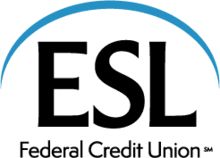ESL Federal Credit Union was founded in 1920 as Eastman Savings and Loan in Rochester, New York, by George Eastman, a 20th-century philanthropist and entrepreneur. Eastman was one of the inventors and businessmen behind Eastman Kodak Company, which later grew to be one of the world’s biggest corporations.
ESL initially only served Eastman Kodak Company employees; a primary purpose behind starting the financial institution was making home buying possible for employees. Over time, the membership grew to include others living in the Rochester area.
ESL’s loans span a wide variety of different mortgage options including fixed- and adjustable-rate loans, FHA, Jumbo, Investment, Home Possible, First Home Club, Home One, and Home Equity Financing Combination loans. In this review, we will discuss how ESL is rated, as well as how it compares to other top mortgage lenders.
Table of Contents
ESL Mortgage Highlights
- Fixed and adjustable-rate, FHA, Jumbo, and other mortgage options are available.
- Many different alternative loan options are available for home buyers with limited credit, credit challenges, and difficulty qualifying for traditional loans.
- Jumbo loans are available for purchasing homes in high-value real estate markets.
- 45-day rate lock allowing borrowers time to shop for a home.
- States serviced: Located in New York State, ESL’s focus is the Rochester, New York, area. Loans are available for purchasing homes in the Genesee, Livingston, Monroe, Ontario, Orleans, Seneca, Steuben, Wayne, Wyoming, and Yates counties.
History of ESL Federal Credit Union
Entrepreneur and philanthropist George Eastman founded ESL Federal Credit Union in 1920 as Eastman Savings and Loan, a financial institution for employees of Eastman Kodak Company. ESL was intended initially as a financial resource for workers who wanted to purchase a home, build savings, and safely set aside their money for a rainy day. Three thousand five hundred employees signed up to be members during the first week of ESL’s existence. In 1996, Eastman Savings and Loan became ESL Federal Credit Union. Shortly after, membership was opened to others than Kodak employees and their families, and Rochester area residents could now join. As one of the largest credit unions in the State of New York, ESL has $6 billion in assets and ranks in the top one percent of credit unions in the US by size. ESL offers a variety of different loans including fixed- and adjustable-rate mortgages, FHA, Jumbo, First Home Club, and others.
Loans Offered by ESL
ESL’s product offering includes the following:
Fixed-Rate Loans
ESL offers fixed-rate loans that help borrowers lock in a low rate for the life of the loan. Monthly payments stay the same until the loan is completely repaid, making this an excellent option for borrowers who want a consistent payment amount and plan to keep their home for several years. ESL offers 10-, 15-, and 30-year fixed-rate mortgages. Credit, income, assets, and other requirements vary.
Adjustable-Rate Loans
Loans with adjustable rates start with a single rate that is typically low during the initial fixed period, but market conditions can increase the mortgage rate and result in a higher monthly payment, once the adjustable term kicks in. The payment could also decrease, though, if mortgage rates go down over time. Borrowers should know that monthly payments may be different from what they originally expected. Adjustable-rate mortgages may be a good option for applicants who plan to sell or refinance soon after purchase.
FHA Mortgage Loans
Federal Housing Administration (FHA) loans from ESL are government-backed and offer more affordable financing with low monthly payments and low down payments. Applicants who are qualified may only need to put 3.5 percent down to purchase a home.
Jumbo Loans
Designed for home buying in high-value markets, jumbo loans are for applicants who need large loans, generally $766,550 and higher total loans.
Combination Loans
Borrowers can obtain two different types of financing that can be used together to fund a home purchase. With a mortgage and a separate home equity loan, buyers can qualify for a more expensive property or get cash while purchasing a home. This could be a good option for applicants who are buying in a high-value area or need to fund a significant remodel to the property.
Investment Property Loans
Borrowers looking to purchase a rental or other investment property may benefit from an ESL investment property loan. 15-year fixed-rate mortgages and balloon payment loans are available. A minimum down payment is required, and applicants must meet ESL qualifications to obtain the loan.
First Home Club Loans
Applicants who are first-time home buyers may be eligible for this mortgage program that offers a grant towards closing costs and down payments. The program accepts a limited number of participants every year, so borrowers will have to meet its somewhat stricter eligibility requirements. Over a ten-month period, borrowers make regular deposits that are then matched by grant funds and can be used towards a home purchase. A homeownership education class is required as part of the program.
Home One Loans
This is a loan option designed to make homeownership more affordable and available for borrowers. Special options for obtaining a down payment are allowed, such as using cash gifts from friends and family. One of the qualifications for the program is taking a homebuyer education course.
Home Possible Loans
Credit history requirements for this loan product are flexible, and loans are available for borrowers with non-traditional qualifications. A homebuyer education course may be required.
ESL Mortgage Customer Experience
The credit union has many different mortgage products available and fairly extensive loan information on its website for applicants who want to learn more about home loans and refinance. Borrowers can apply for a loan by visiting the ESL site, contacting a loan officer, or visiting a branch. Applicants can view rates online, use a financial calculator to get estimates and learn on the ESL website about various loan options. To get a full quote, applicants may have to share personal information about their identity and credit history.
To get started, applicants should schedule an in-person appointment, call the credit union, or begin an application for a loan online.
ESL has limited reviews online, but the information that does appear is generally positive. The Small Business Administration ranked ESL the top Rochester-area lender for small businesses in 2018. Making the 2018 list, the lender was also ranked fourth in the Best Workplaces in Financial Services and Insurance list prepared by the Great Place to Work Institute.
Documentation for mortgage loan applications is required, which is typical. Applicants must demonstrate that they can afford the monthly payments and repay the loan with a low risk of default. To prove this, they may be required to submit bank statements, W2 forms, tax returns from previous years, pay stubs, asset documentation, and other evidence. Requirements and credit standards do vary by the type of loan at ESL. Mortgage officers try to work with applicants to determine their ability to repay.
Mortgage Qualifications
The chart below illustrates how credit score plays a role in determining the approval of an applicant.
| Credit Score | Quality | Ease of Approval |
|---|---|---|
| 760+ | Excellent | Easy |
| 700-759 | Good | Somewhat easy |
| 621-699 | Fair | Moderate |
| 620 and below | Poor | Difficult |
| N/A | No credit score | Difficult |
For borrowers with credit scores of 760 or higher, getting a mortgage loan offer and having multiple available options should be reasonably easy. Applicants with scores in the 700 to 759 range may not necessarily qualify for the most favorable loan options, although they are likely to have at least a few different choices. Borrowers with “fair” credit may want to consider applying for alternative loan programs at ESL and may have limited opportunities. Getting a mortgage at ESL may be tough for applicants with low credit scores or no credit history.
To get the best mortgage options and qualify for the most offers, borrowers should bring in sufficient documentation of their assets and income for loan officers to review.
Debt to Income Requirements
ESL typically offers the best loan terms to applicants with debt-to-income (DTI) ratios that are 35 percent or less. While applying with higher DTIs, borrowers should consider asking about ESL’s alternative and government loan programs, to qualify for the best available offers.
| Debt-to-Income Ratio | Quality | Likelihood to get approved by lender |
|---|---|---|
| 35% or less | Manageable | Likely |
| 36-49% | Needs improvement | Possible |
| 50% or more | Poor | Unlikely |
Phone Number & Additional Details
Homepage URL: https://www.esl.org/
Company Phone: 1-800-848-2265
Headquarters Address: 225 Chestnut Street, Rochester, NY 14604
Conclusion
Established in 1920, ESL Federal Credit Union has showcased a commitment to serving the Rochester community with a wide array of mortgage options tailored to various needs. With its roots in the iconic Eastman Kodak Company, ESL stands today as a significant entity in New York’s financial landscape, combining a rich history with robust offerings and customer service. Whether a first-time homebuyer or someone with unique financial circumstances, ESL continues to offer viable solutions to its members.
How We Review Mortgage Lenders:
Good Financial Cents evaluates U.S. mortgage lenders with a focus on loan offerings, customer service, and overall trustworthiness. We strive to provide a balanced and detailed perspective for potential borrowers. We prioritize editorial transparency in all our reviews.
By obtaining data directly from lenders and carefully reviewing loan terms and conditions, we ensure a comprehensive assessment. Our research, combined with real-world feedback, shapes our evaluation process. Lenders are then rated on various factors, culminating in a star rating from one to five.
For a deeper understanding of the criteria we use to rate mortgage lenders and our evaluation approach, please refer to our editorial guidelines and full disclaimer.
Product Name: ESL Federal Credit Union Product Description: ESL Federal Credit Union, established in 1920, offers a comprehensive range of mortgage products tailored to diverse needs. Originally serving Eastman Kodak Company employees, it has since expanded its services to the broader Rochester, New York area, providing solutions from fixed-rate to jumbo loans. Summary of ESL Federal Credit Union Founded as Eastman Savings and Loan by philanthropist George Eastman, ESL Federal Credit Union has grown into one of New York State’s most substantial financial institutions. With assets totaling $6 billion, ESL caters to a variety of homebuyers, from those seeking their first home to those looking to invest in high-value properties. Their mortgage products, including fixed-rate, adjustable-rate, FHA, jumbo, and several unique programs like the First Home Club, offer tailored solutions to both traditional and non-traditional borrowers. Located primarily in Rochester, the credit union serves several counties, making it a dominant presence in the region’s financial scene. Pros Cons
ESL Federal Credit Union Review
Overall








